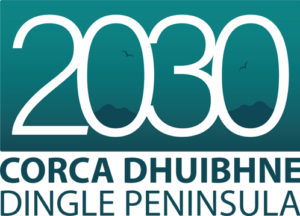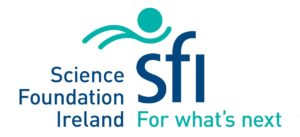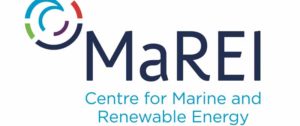MaREI is the Science Foundation Ireland (SFI) Research Centre for Energy, Climate and Marine research and innovation co-ordinated by the Environmental Research Institute (ERI) at University College Cork. The Centre comprises over 220 researchers focusing on defined global challenges such as the Energy Transition, Climate Action and the Blue Economy.
With support from SFI and ESB Networks, MaREI is leading engaged research around the energy transition and climate action on the Dingle Peninsula, as well as providing support on governance and structure for the Corca Dhuibhne/Dingle Peninsula 2030 initiative since its inception in 2018.
Through engaged research with its Corca Dhuibhe/Dingle Peninsula 2030 partners, the engaged research team is working on several different research areas and is tracking, analysing, and documenting experiential learnings.
Below is an overview of our work.
CORCA DHUIBHNE/DINGLE PENINSULA 2030
CASE STUDY, AND COMMUNITY ENGAGEMENT SUPPORT
(2018–ongoing)
Contact: Clare Watson
From the outset, Clare has been supporting the practical development of the Dingle Peninsula 2030 initiative and co-ordinating and supporting the work of the MaREI Dingle engaged research team. She is leading a case study tracking and recording the progress of Dingle Peninsula 2030 and the lessons learnt along the way, with a view to providing briefs for policy, community and other interested stakeholders. This work was funded initially by MaREI, then by ESB Networks and is currently being funding by Science Foundation Ireland Discover Programme..
- To provide practical support and advice where necessary
- To assist in the setting up and development of effective engagement processes, project structures, and communication channels between stakeholders, and between stakeholders and the wider Dingle population.
- To help develop mutually beneficial networks between the Dingle projects and other experienced people and groups outside of the area
- To document the development of Corca Dhuibhne/Dingle Peninsula 2030
- To identify and evaluate what worked and didn’t work, the successes, challenges, and barriers
- To provide learning for the future roll-out of the ESB Networks Smart Grid
- To provide recommendations and learning for policymakers, state agencies, and other community-based groups
SCENARIO ANALYSIS EXPLORING
POTENTIAL FUTURES FOR THE DINGLE PENINSULA’S ENERGY SYSTEM
(2018-2021)
Connor McGookin, PhD Student
Connor’s research was carried out as part of his PhD. It analysed the Dingle Peninsula’s current energy demand and renewable energy potentials, which formed the basis of the Dingle Peninsula Energy Master Plan and Climate Hack. In addition, through a partnership with NEWKD and Dr. Breandán O’Keefe, he was involved in a series of community meetings across the peninsula exploring the social, economic, and environmental challenges facing people when developing an evidence-based community plan. The goal was to capture the concerns and priorities of local communities in order to collaboratively form pathways for the Dingle Peninsula’s transition to a low carbon energy system. This research was funded by the US-Ireland R&D Partnership Programme as part of the CREDENCE project
Objectives:
• To collaborate with members of the public and organisations across the peninsula to capture the broad range of opinions/perspectives
• To collaborate with existing initiatives on the peninsula (i.e. Dingle Sustainable Energy Community, ESB Networks, etc.)
• To understand the potential futures for the peninsula and the energy system that these futures are likely to produce
• To empower local people to become part of the energy transition by providing insights into the energy system
MULTI-STAKEHOLDER APPROACH TO THE SOCIO-TECHNICAL TRANSITION
TO A LOW-CARBON SOCIETY ON THE DINGLE PENINSULA
(2018-2021)
Evan Boyle, PhD Student
Evan’s research was carried out as part of his PhD. It analysed the multi-stakeholder approach to the socio-technical transition to a low-carbon society on the Dingle Peninsula. Using a participatory mapping approach, the different individuals/organisations involved in the Corca Dhuibhne/Dingle Peninsula 2030 initiative were mapped to investigate how the multi-stakeholder network developed over time. An investigation also took place on the collaborative approach to governance taken by the four partner organisations. The ESB Networks Ambassador project was analysed to understand the dynamics required to activate the energy citizen in Ireland in light of this initiative. At a national level, this research worked alongside a range of public bodies, including ESB Networks, to investigate current good practice for community engagement. Evan’s research was funded by ESB Networks.
Objectives:
- Facilitation of a participatory mapping exercise with a number of key stakeholders related to the range of initiatives on the peninsula.
- To work with ESB Networks Ambassadors to assess the integration of new technologies into their lifestyles to attain lessons for future deployment.
- To conduct regular interviews with a wide range of actors involved in Corca Dhuibhne/Dingle Peninsula 2030 to evaluative and analyse this innovative approach to the socio-technical transition to a low-carbon society in a regional context.
- Facilitation of a workshop on community engagement within public bodies with a number of national organisations.
IMPACTS OF TRANSPORT AND HEAT ELECTRIFICATION
ON THE POWER DISTRIBUTION NETWORKS IN IRELAND
(2018-2021)
Barry Hayes
MaREI researchers collaborated with ESB Networks flagship Dingle Project on Medium Voltage (MV) and Low Voltage (LV) electricity network modelling of the Dingle Peninsula. The main goal of this work was to understand the impacts of electrification (transport and heat) and prosumers (network users that both consume and produce electricity) on the Irish power distribution grids.
This research formed part of the larger MaREI project CREDENCE funded by the US-Ireland partnership programme involving researchers in the USA, Ireland and Northern Ireland.
Objectives:
• To develop standardised and automated procedures for creating Low Voltage network models in OpenDSS using GIS/planning databases and patrol information.
• To create accurate models of LV feeders in the Dingle peninsula region and integrate these with the existing Medium Voltage network model.
• To study MV and LV network impacts in future scenarios with high penetrations of electric vehicles, heat pumps and Photovoltaic Solar in the Dingle peninsula.
This work provided significant learnings both for MaREI and ESB Networks that will enable faster and more accurate analysis of smart distribution networks with electric vehicles, heat pumps, local renewable generation and batteries. It is also helping to inform best practices for future network planning and operation across Ireland.
CORCA DHUIBHNE/DINGLE PENINSULA 2030
A MODEL ENABLING COMMUNITY-LED CLIMATE ACTION
(2021-ongoing)
Aoife Deane
aoife.deane@ucc.ie
This project is supporting and enabling Dingle Peninsula 2030 to further develop, focusing on support for implementation of projects and community engagement. It is also enabling research and evaluation of the collaborative engagement processes and shared learnings to inform both policy and practice nationally. It is funded by Science Foundation Ireland Discover Programme
Objectives:
• To strengthen legacy structures in Corca Dhuibhne/Dingle Peninsula 2030 to ensure continued impact beyond the lifecycle of seed funding.
• To share learning nationally with other communities and stakeholders via multimedia outputs and networking events.
• To develop good practice toolkits on engaged research, co-creation processes, and innovative engagement methods in STEM .
Project Team:
Aoife Deane, Communications and Public Engagement Manager
Aoife is project lead on the SFI Discover funded project ‘A Model Enabling Community-led Climate Action’. She works with the team to support community engagement on initiatives, to document and share learnings with stakeholders, and to develop resources on engaged research.
Clare Watson, Engagement Research Support Officer
Clare is leading a process of reflective learning which will culminate in a series of learning briefs. She is also providing practical support and guidance.
Emma Verling
Emma is providing support with a number of aspects of the project, including project management within MaREI as well as working with project partners on delivering the engaged research elements of the work.
CORCA DHUIBHNE INBHUANAITHE 2030 –
A CREATIVE IMAGINING
Clare Watson
This project involves an embedded artist engaging creatively with the wider farming community on the Dingle Peninsula and supporting ten participating farmers to identify climate action solutions that will work for them and wider society. It is funded by Creative Ireland.
Objectives:
• To bring about an attitudinal change and shift in values within the farming community on the Dingle Peninsula with regard to the role that agricultural emissions play in Ireland’s carbon footprint.
• To support the farming community in transitioning to less carbon intensive methods including approaches that will sequester carbon and support biodiversity.
• Combining practical and creative approaches, to create an understanding in the wider community about the challenges that farmers face, thus creating a more supportive environment in which farmers can diversify.
As an active member of the project team, Clare is leading a process of reflective learning, evaluation and documentation with the key participants (farmers, artist, and steering group) throughout the project. As well as contributing to on-going assessment and learning, this work will also inform decision-making throughout. At the end of the project, a learning brief will be co-produced with the farmers and project team.
WHAT IS A LEARNING BRIEF?
These are short documents focusing on learnings from particular activities, projects or outcomes relating to the work of Corca Dhuibhne/Dingle Peninsula 2030. The process is co-ordinated by the MaREI engaged research team but the learning briefs are co-created with other members of the partnership.
-
Each learning brief endeavours to:
- provide context and background
- document what happened and how it happened
- explain the roles of the different participants
- demonstrate what worked, what didn’t work and how improvements might be made
- highlight the benefits, challenges and lessons learnt and how these might be diffused more widely, if relevant
- make recommendations
The overall aim is to capture the learnings in a format that is accessible and useful to the participants involved and to other communities, groups, researchers, companies, agencies and policy makers.
Learning briefs are produced relatively quickly and often during an ongoing process. This means that they are a way of collecting and presenting data in close to real-time.
The process of writing a learning brief involves intensive, collaborative reflection and deliberation. They therefore also provide a useful form of internal reflective learning and evaluation, which helps inform future decisions and actions and ultimately makes our work more effective.


